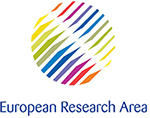The financial support of 2.5 million euros received from the ERA Chair measure of the European Commission strengthens the starting position of the synthetic biology centre set up at the Institute of Technology of the University of Tartu. Synthetic biology is a new research field that has gained attention in the past few years. It aims to construct cells with new functions that may in the future change entire industries.
Professor of Molecular Systems Biology of the University of Tartu and coordinator of the project Mart Loog is glad that the top-level experts of the European Commission have highly evaluated the creation of the centre. Now the UT researchers are one step closer to bringing the centre to life.
According to Loog, the objective of synthetic biology is to construct cells with new functions – reprogram the biomolecular systems in cells.
“In the future, such designer cells will change entire industries, as they can be programmed to fulfil various practical tasks, such as the production of chemicals or medicines or the diagnosis of diseases,” said Loog, adding that interesting application opportunities are also offered by sets of microbes that have been designed ‘intelligent’ and are able to make complex calculations to create meaningful communication between the cells of the set.
The difference of synthetic biology from bio- and gene technology that have been known for decades lies in the fact that in synthetic biology, a much wider-based system design proceeding from standards and modules is used in designer cells. The prerequisite for this approach is synthetic DNA the price of which has dropped significantly in the recent years: it allows reprogramming the DNA code of cells quickly and practically without any limits.
In addition to biologists and chemists, the possibility of systematic approach in cell design has attracted many people with engineering background to join the synthetic biology centres of top universities of the world. Synthetic biology has become a truly interdisciplinary field of research.
According to Mart Loog, the ERA Chair project helps to bring necessary competence to the centre: recruit specialists with a background in high-level synthetic biology to do research at the University of Tartu or even an entire team of such specialists.
“The situation at the Institute of Technology is rather unique, as we have excellent laboratories for all main cell systems used in synthetic biology: mammalian cells, plant cells, bacteria and yeast. In addition, we have a strong support in engineering thanks to the intelligent materials and devices lab. So what might have been considered a weird combination in the first years of the institute may become an ideal setting for bringing biology and engineering together under the name of synthetic biology in the future,” said Loog.
The ERA Chair project will also significantly contribute to increasing the quality of doctoral and master’s studies. In addition, the future chair of synthetic biology will have an important role in the new English-taught bachelor’s curriculum in Science and Technology.
The centre is planned to include a core laboratory with specific equipment that allows research labs and spin-off companies easily test the designer cell prototypes they have created so that they could arrive at their real implementation faster and with less financial cost.
“The centre to be created under the leadership of Mart Loog will cover all most important fields of action in synthetic biology for the University of Tartu, thanks to which we can become a research and development partner to new rapidly developing innovative industries. On one hand, this contributes to the development of research thanks to high‑quality international frontier basic research and on the other hand creates a competitive advantage for new enterprises,” said the Vice Rector for Research of the University of Tartu Marco Kirm.
According to Kirm, the centre’s contribution to teaching is equally valuable and important, as it will lead to a future generation of new researchers and innovation-minded entrepreneurs.
Additional information: Mart Loog, Professor of Molecular Systems Biology, project coordinator, tel: +372 517 5698, email: mart.loog@ut.ee.
http://www.researchresearch.com

